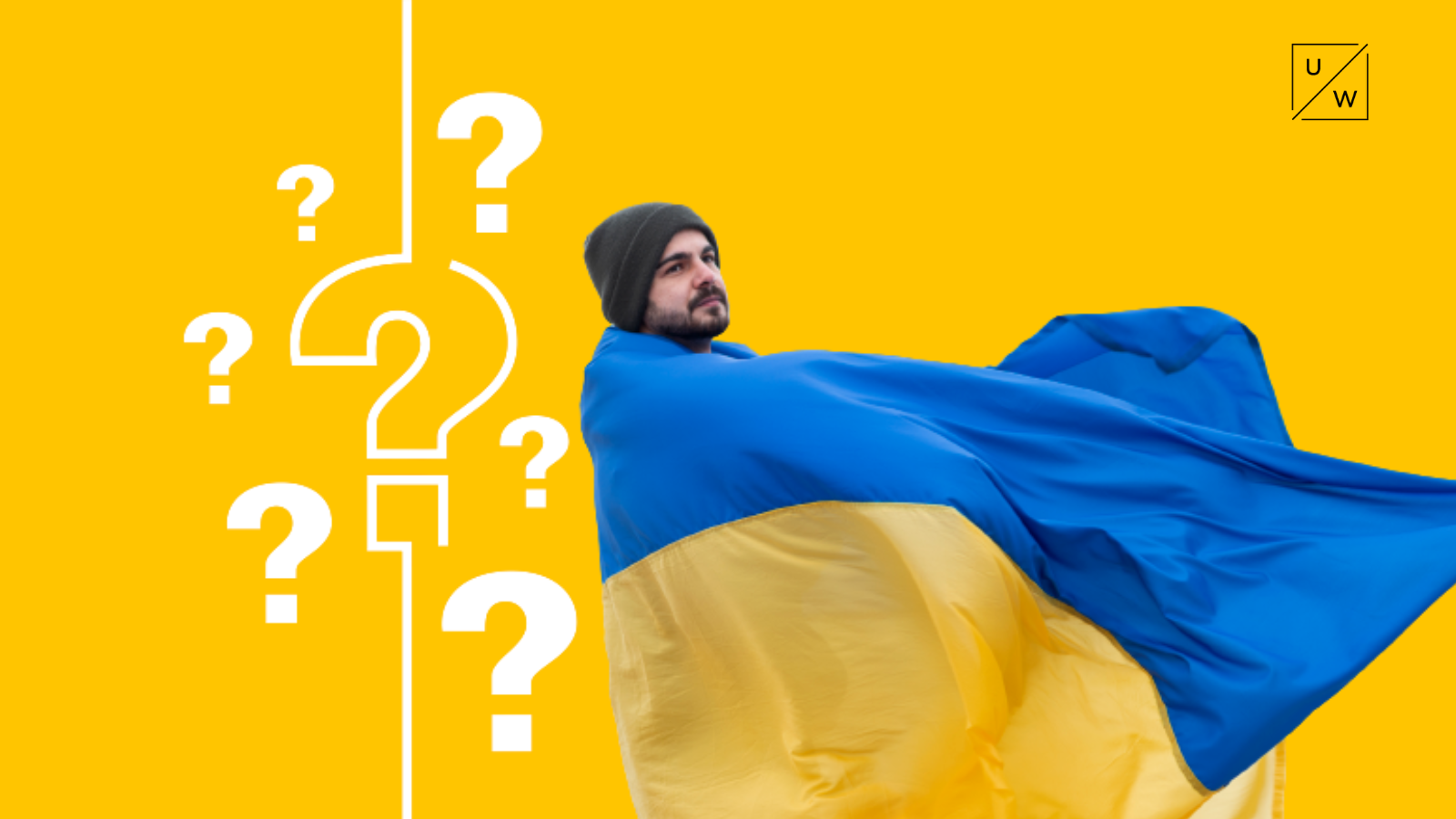Petro Burkovskiy explains what Ukrainians think about the war and the country’s strategic goals.
UkraineWorld spoke to Petro Burkovskiy, Executive Director of Ilko Kucheriv Democratic Initiatives Foundation. Key points in our brief, #UkraineWorldAnalysis.
Remarks on methodology — at the end of this brief.
1. On public opinion on the Russia-Ukraine war
- 94% of surveyed Ukrainians believe that Ukraine will win the war. Only 1% of respondents do not share this opinion;
- For 41% of respondents, victory means expelling Russian troops from all of Ukraine and restoration of borders as of January 2014. Another 41% of respondents interpret victory as a destruction of the Russian army and facilitating the uprising within Russia for its further disintegration;
- 78% of surveyed Ukrainians do not support any concessions to Russia in exchange for peace. Respondents who live closer to the frontline tend to reject the idea of concessions to Russia more than those living in the western regions;
- 96% of respondents consider that the responsibility for the war lies with the Russian political leadership. Meanwhile, 54% of respondents believe that ordinary Russian citizens are also responsible for the war.
- 91% of surveyed Ukrainians support the idea of breaking diplomatic and economic relations with Russia after Ukrainian victory, including imposing a ban on entry of Russians to Ukraine.
2. On public opinion on integration strategy of Ukraine
- As of May 2022, 89% of surveyed Ukrainians stand for the accession to the EU. It is 16% greater than in the same regions as of February 2022. The new supporters previously favored the neutral status of Ukraine;
- Support for NATO integration has been growing synchronously with Russian aggression. Before the Russian occupation of Crimea and invasion of Donbas in 2014, only 13% of Ukrainians supported NATO integration. After the Russian aggression in 2014, the support for NATO integration reached 43%. Amids Russian military build-up near Ukrainian borders on December 2021, the support for NATO integration grew up to 53%;
- 74% of surveyed Ukrainians in central and western regions favor NATO integration, which is 5% greater than in February 2022;
- Only 3% of respondents support the non-aligned status for Ukraine compared to 18% before the Russian invasion;
3. On personal experiences of Ukrainians during the war
- 57% of surveyed Ukrainians have participated in volunteer or charity activities to support armed forces, territorial defense forces, or internally displaced persons. 11% of respondents who have not participated in such activities are planning to join in the future;
- 20% of respondents have lost their job or source of income, but 7% have already found a new one. 10,5% of respondents have lost their job but still have not found a new one;
- 51% of surveyed Ukrainians feel hope while thinking of their personal future and 61% — of the future of Ukraine.
4. On methodology and challenges of conducting public opinion polls during the war
- One of the challenges for conducting a public opinion poll amids the Russian aggression is the change in the population structure due to the mass displacement of people from the eastern and southern regions to the western and central regions of Ukraine;
- Another limiting factor is that a part of Ukrainian territory remains occupied by Russia, while regions bordering with the frontline are too dangerous for conducting polls;
- For these reasons, it is impossible to conduct a poll which would represent public opinion of the whole nation;
- Still, it is possible to observe some trends in the public opinion occuring during the war if compare the results of the new survey to the pre-war surveys;
- Despite the war, it is important 1) to conduct surveys with all methodological accuracy in order to provide credible data and 2) to counter any attempts to use public opinion polls as a political weapon aiming to distort real data;
- The following data represent public opinion in the central (Vinnytsia, Kropyvnytskyi, Khmelnytskyi, Cherkasy) and western (Chernivtsi, Ivano-Frankivsk, Lviv, Rivne, Ternopil, Volyn, and Zakarpattia) regions of Ukraine which have been affected by the war much less than other regions. The results are based on the face-to-face interviews conducted by Ilko Kucheriv Democratic Initiatives Foundation in May 2022.
Links to the polls results:
1) "How the War Changed the Way Ukrainians Think About Friends, Enemies, and the Country's Strategic Goals" [in English]: https://bit.ly/3BcvxIt
2) "Feelings of Ukrainians during the war: emotions, expectations, personal experience" [in Ukrainian]: https://bit.ly/3cwKqL3
This material was prepared with financial support from the International Renaissance Foundation.

